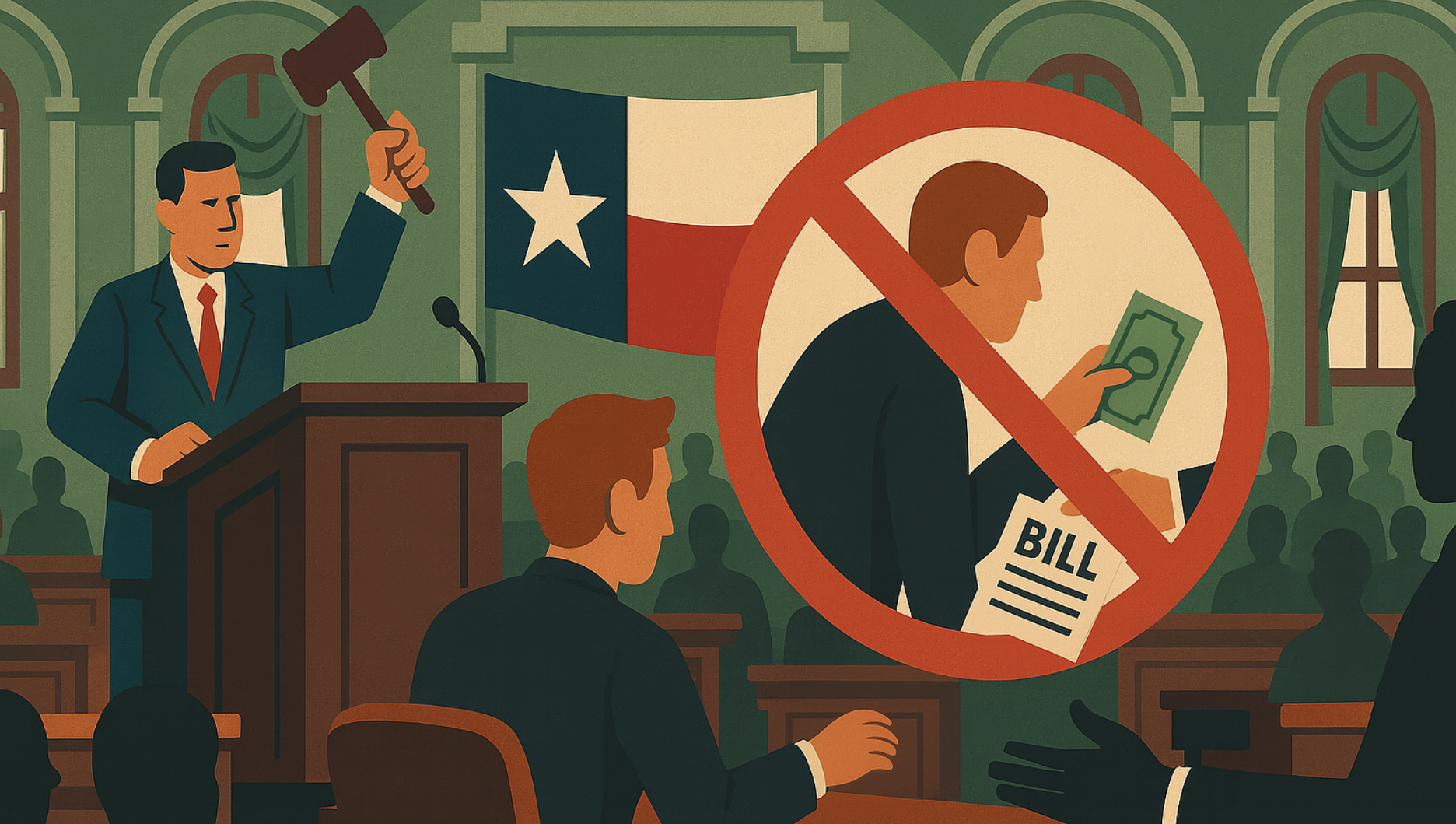It is a difficult time to be a taxpayer in Texas. One example: appropriations of state funds during the recently concluded regular session were up 55% over appropriations in 2021, an $89 billion increase in just four years, while the increase over the last two years is $25 billion, 11.4%.
The problem, though, is not just how much money Texas politicians are spending. It is what they are spending it on and the deception they use to hide what they are doing. We certainly expect this kind of behavior from politicians in the Washington, D.C. swamp. But one would hope that in Texas, which has been under the complete control of Republicans for 23 years, things would be different.
We should acknowledge that Texas is generally in better shape than most of the rest of the country and particularly better than the blue states, and that some good bills have passed in recent years. Yet, over the next few days as we examine several bills or spending initiatives that passed the Texas Legislature this session, it will leave no doubt that the swamp is alive and well in Austin.
Senate Bill 646: Student Loan Repayment for Health Care Professionals
Remember Joe Biden? He’s the guy that got much of the country in an uproar by trying to unconstitutionally pay off student debt with taxpayer dollars. Twice! Well, the Republican-controlled Texas Legislature just passed a Democrat bill that will do the same thing with student debt for certain health care professionals.
We start with the swamp problem that a student loan repayment program for health care professionals is already in place in Texas. Depending on the occupation of the applicant, they are eligible for payments over three years ranging from $10,000 for chemical dependency counselors to $160,000 for psychiatrists. Besides the fact that such a program is theft—forcibly taking money from one individual and giving it to another, it also helps sustain the out-of-control costs of health care, driven in part by the high tuition and fees charged by university medical schools.
What SB 646 does is greatly expand the pool of health care professionals, i.e., special interests with connections in the Austin swamp, who qualify for loan repayment. It expands the specific occupations that are eligible for the program as well as where health care workers can work to be eligible. The is also a requirement that the applicant’s job be in a Mental Health Professional Shortage Area.
The big winners are under SB 646? Public school counselors.
Not only did the Legislature this session give big pay raises to teachers and other school employees paid for by an $11 billion increase in taxpayer funds for government schools, legislators are for the first time allowing those who “provide mental health services to … students enrolled in a public school” to qualify for student loan repayment. And since SB 646 also eliminates a provision in current law that limits the number of repayment assistance grants each year to no more than 30 percent in any one category of health care professionals, public school counselors will likely receive the majority of loan repayments under the system.
The Texas Legislative Budget Board (LBB) is tasked with providing a fiscal note on each bill considered in committee that details the cost of the bill to the state. The fiscal note for SB 646 says, “No significant fiscal implication to the State is anticipated. It is assumed that any costs associated with the bill could be absorbed using existing resources.”
This is another swamp problem. The LBB’s task is not to provide legislators and the public with an estimate of how much a particular bill will cost taxpayers if passed. Rather, it provides the “fiscal implications” of a bill only on certain state revenue sources. A fiscal note on a bill that might cost local governments millions of dollars will receive the familiar, “No significant fiscal implication to the State is anticipated.” Whatever the LBB means when it says the “costs associated with [SB 646] could be absorbed using existing resources,” the Legislature appropriated $28 million to pay for the cost of the Mental Health Loan Repayment Program over the next two years (CCR SB 1, p. III-72). As recently as 2021, appropriations for the program were only $3.2 million (LBB, p. 265).
How did Texas Republicans vote on SB 646? In the Texas Senate, more than two-thirds voted in favor, with 14 Republicans voting in favor of the bill, and only 6 voting against (p. 1676):
- 14 Republican Yes Votes: Bettencourt, Birdwell, Flores, Hagenbuch, Hall, Hancock, A. Hinojosa, Hughes, King, Nichols, Parker, Paxton, Perry, Schwertner
- 6 Republican No Votes: Campbell, Creighton, Huffman, Kolkhorst, Middleton, Sparks
In the Texas House of Representatives, Republicans did better. There were 63 Republicans that voted against SB 646, and 24 Republicans who voted for the bill (p. 6395):
Barry; Bonnen; Buckley; Button; Capriglione; Cunningham; Curry; Darby; Dyson; Gates; Geren; Guillen; Hayes; King; Kitzman; Lambert; Landgraf; Lopez, J.; McLaughlin; Meyer; Phelan; Smithee; VanDeaver; Wilson.
But paired with House Democrats, those 24 Republicans were enough. This highlights a major swamp problem with House Republicans; typically, you’ll find enough establishment Republicans, most of them part of House Speaker Dustin Burrows’ team, to vote with the 62 Democrats (all that are needed are 14 Republicans) on Democrat priorities and other high-cost measures like SB 646 to reach 76 votes for a majority in the 150 member House; fiscal conservatives are simply out of luck.
The Texas Senate has a similar swamp dynamic at work, though it is somewhat less pervasive and corrupting than in the House. It takes 21 votes (2/3 of the Senate) to pass a joint resolution to send a constitutional amendment to Texas voters for their approval. Yet there are only 20 Republicans in the Senate. This presents a problem because Lt. Gov. Dan Patrick and Senate Republicans have of late been using constitutional amendments to adopt numerous spending initiatives in order to bypass the Texas Constitution’s Tax Spending Limit and/or the normal appropriations process (for instance, the $13.8 billion in spending through constitutional amendments in 2023). Republicans need at least one Democrat vote to pull this off. We can rest assured that gaining the votes of Senate Democrats for these Senate Republican spending priorities comes at a cost; perhaps that cost includes the passage of SB 646.
On Wednesday, we will examine Senate Bill 22, which authorized $1.5 billion of subsidies for the film industry in Texas.
Texans for Fiscal Responsibility relies on the support of private donors across the Lone Star State in order to promote fiscal responsibility and pro-taxpayer government in Texas. Please consider supporting our efforts! Thank you!
Get The Fiscal Note, our free weekly roll-up on all the current events that could impact your wallet. Subscribe today!




